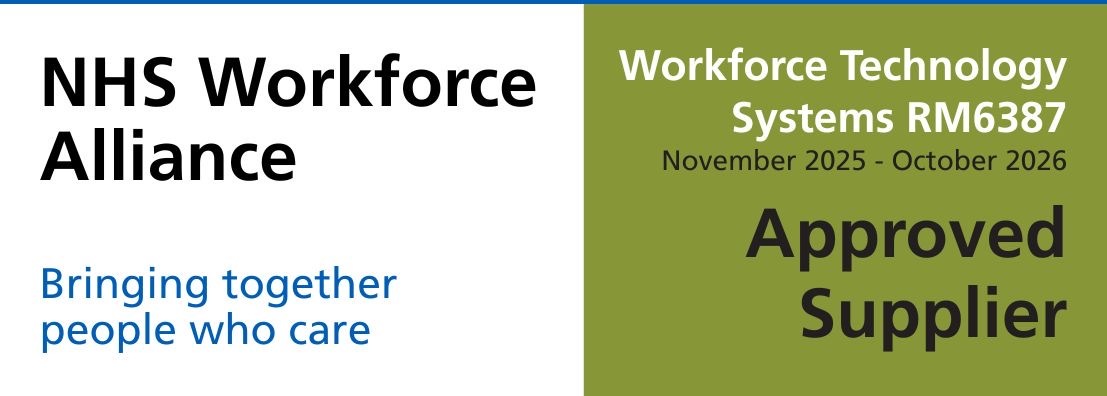
Blog by Flexzo
5 Hidden Risks of Relying on Agency Staff for NHS Shift Cover
Agency staff have long served as a critical safety net for NHS Trusts facing staffing gaps. When rotas have empty shifts, agencies provide qualified professionals who can step in with minimal notice. On the surface, this arrangement appears to solve an immediate problem.
However, beneath this seemingly straightforward solution lies a complex set of risks that many Trusts only discover once they’ve become deeply dependent on agency staffing. These hidden challenges extend far beyond the obvious financial burden of premium agency rates.
The Patient Safety Paradox
The primary reason for bringing in agency staff is to maintain safe staffing levels and protect patient care. Yet this creates what we might call the patient safety paradox – a situation where the very solution intended to improve safety can sometimes undermine it in subtle ways.
Local Systems Knowledge
Agency professionals, despite their clinical expertise, typically lack familiarity with local policies, protocols, and systems. A nurse who has worked across dozens of different hospitals may be clinically excellent but still needs to ask:
- Where equipment is kept
- How to order tests
- Which documentation to complete
- Who to contact for specific issues
These knowledge gaps create small delays that accumulate throughout a shift, particularly during time-critical situations when efficiency matters most.
Continuity of Care
Perhaps more concerning is the impact on continuity of care. Regular staff develop an understanding of patients’ baseline conditions through repeated interactions. This familiarity allows them to notice subtle changes that might indicate early deterioration.
Agency staff working isolated shifts lack this baseline knowledge. For vulnerable patients, especially those with communication difficulties or complex needs, this continuity gap can mean slower recognition of important clinical changes.
The Hidden Compliance Burden
While staffing agencies conduct basic verification checks, the ultimate responsibility for ensuring proper qualifications and documentation remains with the Trust. This creates an administrative burden that often goes unrecognised when calculating the true cost of agency dependency.
Verification Processes
Each time a Trust brings in agency staff, someone must verify:
- Identity
- Qualifications
- Right to work
- DBS status
- Professional registration
This process frequently gets duplicated across departments and between different Trusts using the same agency workers. For organisations using multiple agencies, this can translate to dozens of staff hours each week spent checking and rechecking documentation that has already been verified elsewhere – time that could otherwise support direct patient care.
Compliance Standards
The consistency of compliance standards presents another challenge. Different agencies maintain varying verification processes and standards. This inconsistency creates potential risk gaps where certain checks might be less thorough than a Trust’s internal standards would require.
When managers face pressure to fill shifts quickly, there’s a real temptation to take compliance as given rather than verified – an assumption that can lead to significant regulatory issues.
The Knowledge Drain Effect
Perhaps the most hidden long-term risk comes from what happens to institutional knowledge and expertise when Trusts become heavily reliant on temporary staff. This gradual erosion of collective wisdom happens so slowly it often goes unnoticed until significant damage has occurred.
Mentorship Opportunities
Teams with high proportions of temporary members offer fewer opportunities for mentorship and knowledge sharing. Junior permanent staff lose valuable learning experiences that come from working consistently with experienced colleagues.
Organisation-specific expertise fails to develop properly as those who hold this knowledge have fewer opportunities to pass it on. For specialties already facing shortages, this reduced knowledge transfer creates a widening gap in skills and experience.
Service Improvement
Service improvement initiatives suffer particularly under high agency use. Meaningful improvement relies on staff who remain present long enough to:
- Identify problems
- Implement changes
- Evaluate results
- Refine approaches
A constantly changing workforce makes it nearly impossible to maintain this improvement momentum. Quality projects stall, inefficiencies persist, and the organisation misses opportunities to develop better working practices. This stagnation ultimately affects both patient outcomes and operational efficiency.
The Team Cohesion Challenge
Healthcare delivery fundamentally depends on effective teamwork, requiring clear communication and mutual understanding between colleagues. High agency use directly challenges these essential team dynamics in ways that affect both efficiency and safety.
Communication Effectiveness
Teams with constantly changing membership struggle to develop the communication shorthand and mutual trust that characterise high-performing healthcare teams. Something as simple as understanding a colleague’s communication style can make a significant difference during pressured situations.
When team composition frequently changes, these subtle but important dynamics never have a chance to develop properly, creating communication gaps and reduced efficiency.
Psychological Safety
Psychological safety – the ability to speak up about concerns without fear of negative consequences – is essential for preventing errors in healthcare settings. This safety develops through consistent relationships and established trust.
Agency staff may hesitate to raise concerns in unfamiliar environments, fearing:
- Negative perception
- Impact on future assignments
- Creating tension in new environments
Similarly, permanent staff might be less forthcoming with temporary colleagues they don’t know well. This reduced psychological safety creates an environment where potential problems go unmentioned until they become actual incidents.
The Self-Reinforcing Cycle
The most troubling hidden risk is how agency dependence can become self-perpetuating, creating a downward spiral that grows increasingly difficult to escape. This cycle affects multiple aspects of healthcare delivery and accelerates over time if left unaddressed.
Workforce Impact
As more permanent staff leave for the perceived benefits of agency work, those who remain face increased workload and responsibility. This often leads to:
- Burnout among remaining staff
- Deteriorating workplace culture
- Further staff departures
- Inconsistent care approaches
Some departments eventually find themselves with a majority temporary workforce, making it nearly impossible to maintain consistency in approach, standards, or workplace norms.
Leadership Continuity
Leadership continuity suffers particularly in agency-dependent environments. Effective healthcare leadership develops over time as leaders build relationships and understand the specific challenges of their organisation.
When key leadership positions are filled by rotating agency staff, this continuity disappears. Without consistent leadership:
- Strategic initiatives stall
- Staff development is neglected
- Organisational direction becomes unclear
- Underlying issues remain unaddressed
This leadership gap further worsens staffing challenges, creating yet another loop in the cycle of agency dependence.
Breaking the Cycle
These hidden risks pose serious challenges, but they aren’t insurmountable. Forward-thinking NHS organisations are finding ways to address these issues through innovative approaches to flexible staffing that maintain the benefits while minimising the risks.
Collaborative Staff Banks
Collaborative staff banks represent a promising middle ground between rigid permanent staffing and traditional agency use. By creating a shared pool of pre-approved healthcare professionals across multiple organisations, Trusts can maintain necessary flexibility while reducing many risks associated with conventional agency staffing.
These collaborative approaches offer:
- Consistent compliance standards
- Centralised documentation management
- Greater staff familiarity with facilities
- Improved continuity of care
- Cost efficiency without agency markups
Technology Solutions
Technology-enabled solutions are transforming how NHS Trusts approach temporary staffing needs. Modern platforms like Flexzo Ai directly connect healthcare professionals with organisations through AI-powered matching systems.
This approach eliminates many hidden risks while maintaining the flexibility that both staff and organisations require:
- Centralised compliance management
- Smart matching based on experience
- Increased familiarity through repeat assignments
- Better work-life balance for professionals
Building Sustainable Workforce Models
The foundation of effective healthcare delivery is a stable, engaged workforce with the right balance of permanent and flexible staff. Finding this equilibrium requires recognising both the visible and hidden risks of excessive agency dependence while acknowledging the legitimate need for workforce flexibility.
By adopting innovative approaches like collaborative staff banks, NHS Trusts can begin breaking the cycle of agency dependence while maintaining the adaptability needed to respond to changing demands. This doesn’t mean eliminating all agency use – there will always be situations where traditional agencies fill an important gap – but rather developing a more sustainable approach to workforce planning that minimises hidden risks.
The most successful Trusts increasingly view staffing not merely as a day-to-day operational concern but as a strategic priority directly linked to:
- Quality of care delivery
- Financial sustainability
- Organisational culture
- Long-term service development
This perspective shift enables more thoughtful approaches to workforce challenges and opens the door to innovative solutions that address both immediate needs and long-term sustainability.
Get in Touch
If your Trust is experiencing the hidden risks of agency dependence, exploring alternative approaches could help break this cycle. Learning more about collaborative staff banks and innovative staffing platforms can provide valuable insights into developing a more sustainable flexible staffing model – one that maintains quality and continuity while controlling costs and reducing administrative burden.
If you’re interested in how this model could work for your organisation, the Flexzo Ai team would be happy to share more information. Our collaborative staff bank platform was designed specifically to address these hidden risks while providing the flexibility that modern healthcare organisations need. Please get in touch to learn more about how we’re helping NHS Trusts build more sustainable staffing models.






